Ivalua: Transforming procurement with digitalisation & ESG

Despite ESG initiatives being a key priority for many boardrooms and customers and employees alike choosing brands based on their values, there remains a disconnect between words and actions.
Ivalua’s latest report looks at pioneers in this space identifying three key lessons that are both drives for success but also top challenges for organisations to make progress.
1. Incentivise procurement - “Everything starts with people [...] Words and good intentions are rarely enough to drive behavioural changes.”
2. Collaborate to win - “[Collaboration] helps minimise any cost trade-offs and drive ongoing improvements. Give your suppliers more flexibility in how they meet requirements, jointly set progressive ESG goals and actively communicate. Digitisation is key to enabling efficient, effective collaboration with a broad set of suppliers, not just a few strategic ones.”
3. Enable transparency - “Two of the top five challenges and strategies in this study involve transparency. Organisations struggle to assess the ESG performance of their suppliers and are generally abysmal when it comes to understanding the sub-tier, yet this is where most issues lie. This is another area where spend management technology can help.”
Driving Sustainable Practice and CSR
As the awareness of ethical and sustainable practices rises, organisations are faced with the challenge of not only meeting these demands but setting themselves apart from the competition.
“Sustainable and socially responsible procurement practices that cover the full spectrum can provide end-to-end visibility that facilitates monitoring and compliance, and delivers continuous value to the business,” said Ivalua.
For many heads of procurement, CSR is a major consideration. 68% reported supply chain fair labour practices as a high priority and 52% cited preventing bribery and corruption.
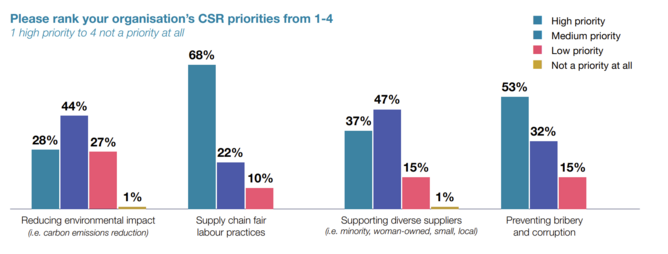
Strategies to improve sustainability
Sustainability at scale requires awareness of global market dynamics. It is also important to stay on top of changing policies and attitudes when it comes to labour practices, the environment and other key issues, as well as consider supplier capabilities and activities.
“Data-driven approaches in which all parts of the supply chain are readily available to heads of procurement are essential for extracting actionable insights and crafting effective spend management solutions.”
55% of respondents reported that collaboration with stakeholders to set goals was a top priority for improving sustainability, along with 43% identifying visibility into sub-tier suppliers as an important strategy.
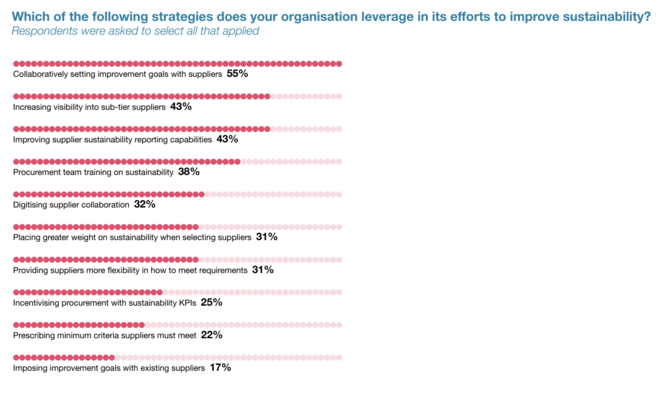
When reviewing their current performance, 41% of respondents view their ESG performance as slightly better than the competition, while 18% consider their sustainability stance as significantly better than the rest of their industry.
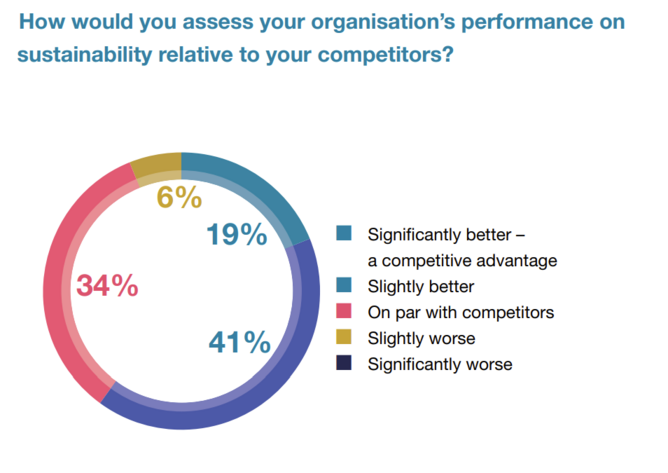
Challenges to sustainable practices
With the consequences of continued carbon emissions clear, many large organisations have committed to net-zero emissions by 2050. Despite this commitment, 52% of procurement leaders highlighted that their organisation lacks incentives to reduce emissions, with some stating that sustainability is not even considered a KPI.
43% also reported a lack of visibility into their sub-tier suppliers.
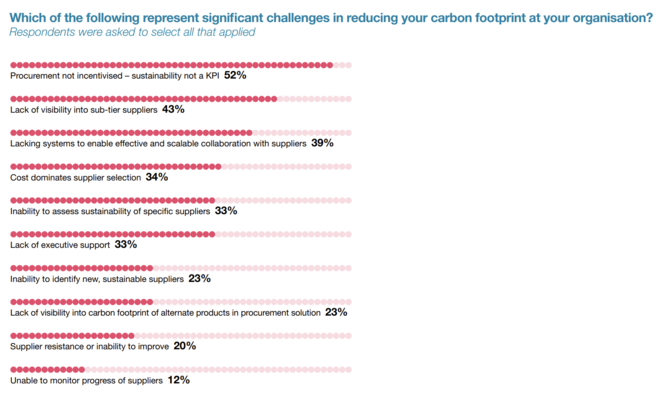
Digital transformation
No longer a ‘buzzword’ digital transformation is a functional necessity for organisations and sectors around the world.
Automation, robotics, AI, 3D printing and IoT can impact how procurement operations function, how data is analysed and managed and how supply chains and procurement practices deliver value.
Key findings from the report highlighted the need for more transparent information flows and improved data management. Other areas in need of digitalisation include supplier identification, vendor communication, and inventory management.
The benefits of digital innovation
For procurement, there are many benefits of digital innovation such as improved efficiency and transparency in operations and supplier relationships, streamlining operations, improving risk management, and driving cost savings.
“As procurement leaders and their workers leverage data-driven opportunities, they are better able to drive revenue for their organisations as well as improve customer and supplier relationships,” said Ivalua.
In the report, the company discovered that 63% of respondents reported cost efficiencies and improvised ROI as principal advantages of digital innovation. Other key benefits included strengthening supplier relationships (41%) and creating greater customer satisfaction and improved service levels (40%).
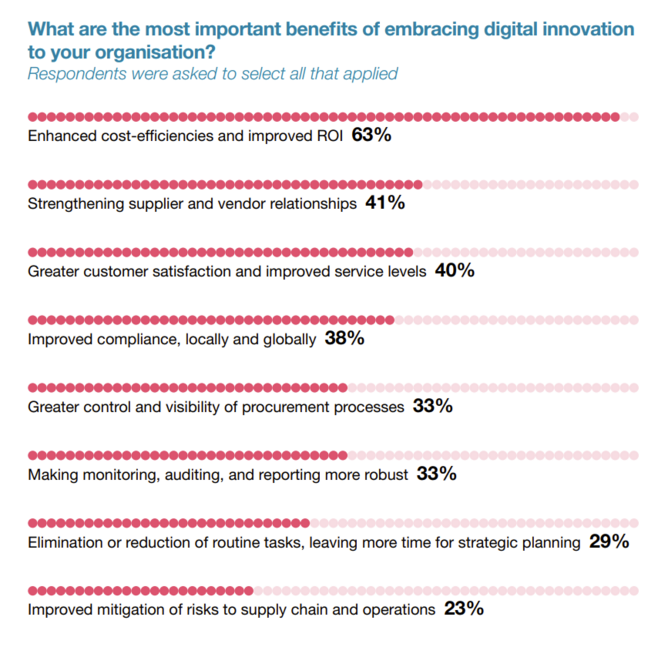
Embracing digital innovation
While procurement’s focus has traditionally been targeted to cost and performance, it will be important for procurement to become a strategic function of supply networks, innovation and growth that aligns with business operations, sustainability and corporate governance.
“Procurement leaders should also adopt a digital strategy that takes the organisation’s technological maturity into account. Taking an agile approach that emphasises smallerscale objectives with rapid returns can provide results that gain both C-suite approval and the active participation of procurement workers in the field,” said Ivalua.
46% of respondents report investing in training and development as well as knowledge sharing as key strategies to empower employees and embrace innovation.
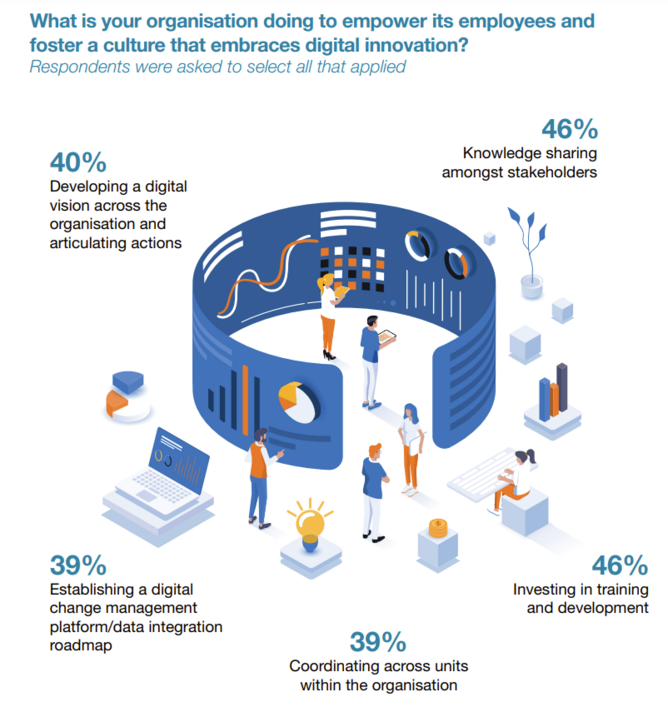
Challenges in Driving Transformation for Procurement
Facing both internal and external challenges procurement leaders ranked collating and interpreting data as a major obstacle (60%), followed by lack of supplier support (59%), and problems with legacy IT systems (54%).
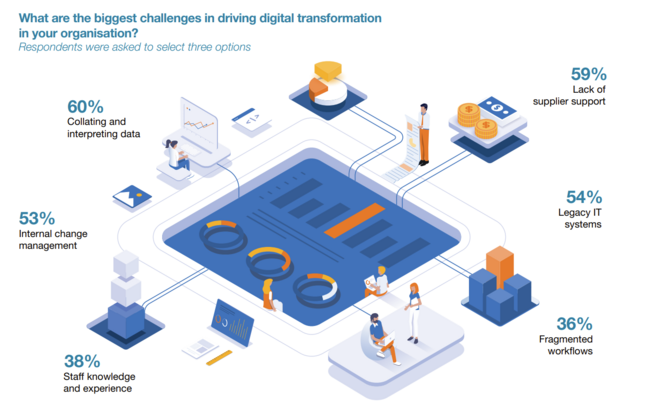
Mitigating risk and future-proofing supply chains
As the world readjusts to the effects of COVID-19, organisations are striving to develop effective contingency plans to protect their networks from future supply chain shocks.
53% of those surveyed are currently confident in the resiliency of their supply chains, with 20% somewhat confident, and 11% not confident or extremely unconfident.
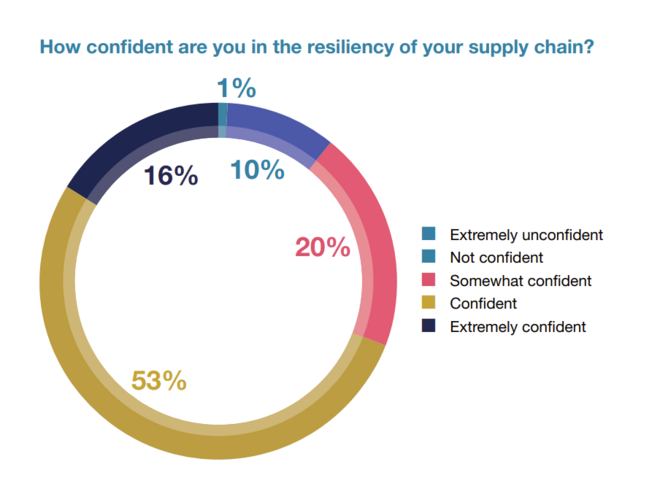
Increasing resiliency
Under pressure to drive resilience and transparency, monitoring supplier performance, compliance, and the flow of materials will be key to end-to-end visibility.
53% of respondents identify the need to bring critical activities in-house for greater visibility as a key objective over the next 12 months to improve resiliency.
52% of procurement leaders are also emphasising their increase in internal innovation and suppliers, as well as diversifying their supplier base (46%), and investing in IT upgrades to improve legacy architecture (45%).

Future-proofing procurement
“The current pandemic is just one of myriad factors that could bring disruption to supply chains in the future. To meet major challenges such as trade wars, cyber-attacks, natural disasters, and international conflict, heads of procurement must take steps to reduce supply chain risk and provide future-proofing against supply and demand shocks,” said Ivalua.
The report identifies that 65% of procurement leaders are investing in AI and RPA technologies to future-proof their organisations, with 44% standardising processes across geographies, and 40% reducing risk through strategic supplier fragmentation.
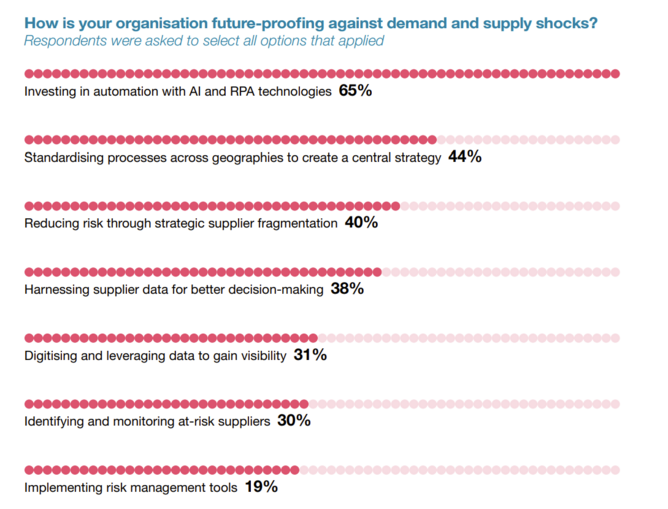
To read Ivalua's full report, click here.






